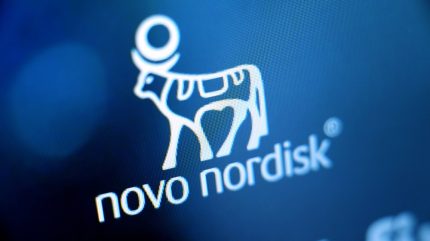
Pfizer’s agreed takeover Metsera could be in jeopardy, after Novo Nordisk submitted a rival bid to acquire the obesity biotech.
Novo Nordisk has offered $56.50 per share in cash for Metsera, reflecting an enterprise value of $6bn, eclipsing the $47.50 per share offer – corresponding to $4.9bn – made by Pfizer in September 2025. Novo is also offering a potential additional $2.5bn if certain milestones are met while Pfizer’s add-on is up to $2.4bn.

Discover B2B Marketing That Performs
Combine business intelligence and editorial excellence to reach engaged professionals across 36 leading media platforms.
Novo said the acquisition would be in line with its “long-term strategy of developing innovative and differentiated medicines and treating millions more people living with obesity and diabetes and their associated comorbidities”.
Up until Novo’s late and unsolicited bid, announced 30 October, Pfizer’s agreed takeover of Metsera – a biotech developing long-lasting weight loss therapies – looked like a done deal.
This is looking less likely, however, as not only has Metsera received the bid, but it is mulling it over, adding that Novo’s approach constitutes a “superior company proposal”.
Pfizer was incensed with the development that Novo Nordisk – a potential sparring partner in the lucrative obesity and diabetes treatment market – is eyeing its own buyout of Metsera. Pfizer called the Danish drugmaker’s proposal “reckless and unprecedented”.

US Tariffs are shifting - will you react or anticipate?
Don’t let policy changes catch you off guard. Stay proactive with real-time data and expert analysis.
By GlobalDataIn a statement, Pfizer said: “It is an attempt by a company with a dominant market position to suppress competition in violation of law by taking over an emerging American challenger.
“The proposal is illusory and cannot qualify as a superior proposal under Pfizer’s agreement with Metsera, and Pfizer is prepared to pursue all legal avenues to enforce its rights under its agreement.”
Founded in 2022 and publicly listed in January this year via a $289m initial public offering (IPO), Metsera does not hold the same view.
In its own statement, the company said: “Pfizer has informed Metsera that it does not believe Metsera has the right to deliver the notice. Metsera disagrees with Pfizer’s view.
“[If] the Novo Nordisk proposal continues to constitute a superior company proposal, Metsera would be entitled to terminate the Pfizer merger agreement.”
The outcome of the bidding war could hinge on whether Pfizer comes back to the deal table with improved terms, which could include a more lucrative offer. Though Novo benefits from a higher bid, Pfizer’s response, which called Metsera an “emerging American challenger”, could resonate with US antitrust authorities who have oversight over acquisitions of US companies.
The fierce competition for Metsera underlines the industry’s confidence in the biotech’s pipeline. Metsera’s offerings centre around injectable and oral peptides for weight loss. The biotech has developed a platform that allows for less frequent dosing – targeting administration on a monthly basis. This would be a significant improvement on the weekly dosing seen with approved weight loss therapies.
Metsera’s lead candidate is MET-097i, is available as both weekly and monthly injectable glucagon-like peptide-1 receptor agonists (GLP-1RAs). Both frequencies are in Phase II development (NCT06897202 and NCT06973720). Phase IIa data with MET-097i dosed on both a weekly and monthly regimen have demonstrated robust weight loss after 12 weeks.
GlobalData senior analyst Shehroz Mahmood says: “Novo Nordisk’s unsolicited bid for Metsera represents a defensive move to block Pfizer’s pending acquisition.
“This competitive bidding war underscores the high strategic value both companies place on Metsera’s ultra-long-acting GLP-1RA platform, particularly MET-097i’s differentiated 380-hour half-life enabling monthly dosing convenience that could challenge the weekly administration paradigm currently dominated by Novo’s Wegovy (semaglutide) and Eli Lilly’s Zepbound (tirzepatide).”
For Novo Nordisk, the bid represents the most daring and bold venture so far under new CEO Maziar Mike Doustdar. Amid tumbling share prices and market erosion to Eli Lilly, Doustdar has already overseen large job cuts and a shuttering of the company’s cell therapy unit. A successful takeover of Metsera would therefore be a significant statement of the company’s intent in the future GLP-1RA market.
Mahmood adds: “The timing suggests Novo Nordisk recognises the threat of losing market share to a rejuvenated Pfizer obesity franchise and is willing to pay a significant premium to maintain its leadership position in the rapidly expanding GLP-1RA obesity market.”
Pfizer suffered a failure of its most advanced GLP-1RA, danuglipron. The company decided to discontinue development of the candidate in April 2025.




